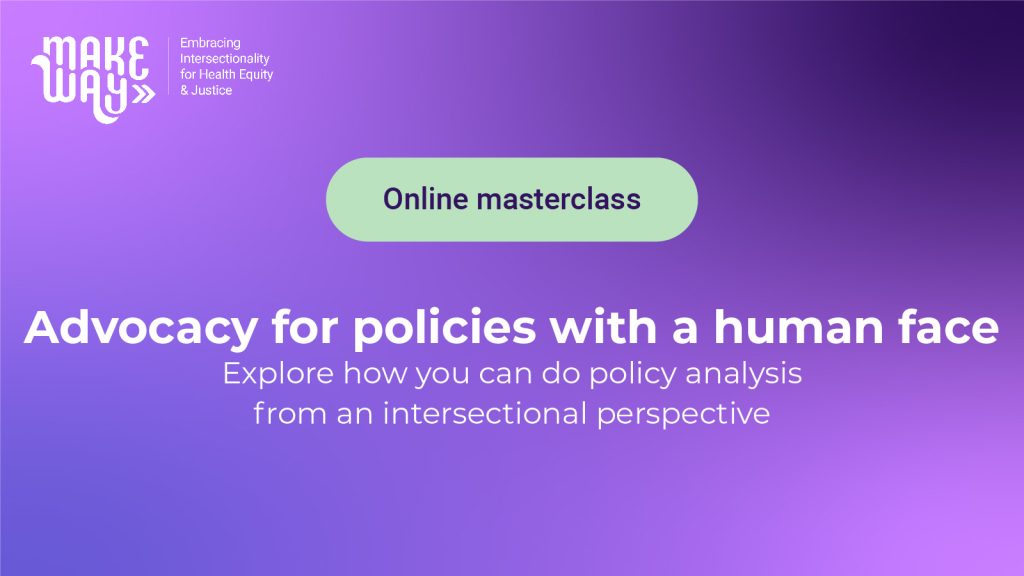Advocacy for policies with a human face: A look back at our masterclass on intersectional policy analysis
 06 December 2024
06 December 2024

On November 11 and 12, we hosted an interactive online masterclass, ‘Advocacy for policies with a human face: Explore how you can do policy analysis from an intersectional perspective.’ With participants from diverse sectors, we explored practical tools and strategies for integrating intersectionality into lobby and advocacy efforts to improve sexual and reproductive health and rights (SRHR).
Equipping advocates with intersectional tools
The goal of the masterclass was clear: to empower participants with the tools and knowledge needed to embrace an intersectional approach in their advocacy work. By highlighting how overlapping vulnerabilities impact SRHR, the sessions provided actionable insights into creating policies that are inclusive and equitable.
The masterclass was based on the Make Way Toolkit—a game-changing resource for intersectional SRHR advocacy. The toolkit offers a suite of tools tailored to different stages of the advocacy cycle, all designed to help create meaningful change. With trainers available in all Make Way countries, participants had the opportunity to gain practical skills and learn from experienced facilitators.
Day 1: Exploring the toolkit
The first session introduced participants to several tools from the Make Way Toolkit:
- Intersectionality 101: Understanding the concept of intersectionality and its importance in advocacy.
- See-Judge-Act Tool: A tool for analysing issues from a religious perspective and taking community-centered action.
- Meaningful Youth Engagement Training Guide: Strategies for involving youth in impactful ways.
- Intersectional Community Scorecard: A citizen-driven accountability tool for assessing SRHR services.
- Budget Analysis Tool: Insights into monitoring and influencing government budgets.
- Communication Tools: Creating strategies and crafting inclusive messages for advocacy.
This session provided a broad overview of the toolkit, allowing participants to understand the objectives and application of each tool.
Day 2: A deep dive into the IBPA tool
On the second day, we focused on the Intersectionality-Based Policy Analysis (IBPA) Tool, a tool for uncovering biases and power imbalances in policies and helping to humanise them. The session began with an introduction to the tool, followed by diving into its methodology and practical applications. Participants practiced using the IBPA tool in group work by applying selected questions from the tool to analyse Article 17 of the African Charter on Human and People’s Rights on the Rights of Persons with Disabilities in Africa. Examples of the IBPA tool’s application in Rwanda and Zambia were presented during the session. By the end of the session, they had gained hands-on experience in applying the tool to real-world advocacy scenarios.
Moving forward
With seventy individuals joining the masterclass, participants were left with actionable skills to bring intersectionality into their advocacy efforts, ensuring that policies reflect the lived realities of diverse communities. This masterclass was a testament to the power of intersectional advocacy in driving change. As we continue to champion SRHR for all, we’re excited to see how advocates apply these tools to push for inclusive policies that leave no one behind.
Want to learn more?
You can watch both sessions back: Day one Toolkit Masterclass and Day two Toolkit Masterclass.
Or explore the Make Way Toolkit and see how you can amplify your advocacy efforts with intersectional approaches.



